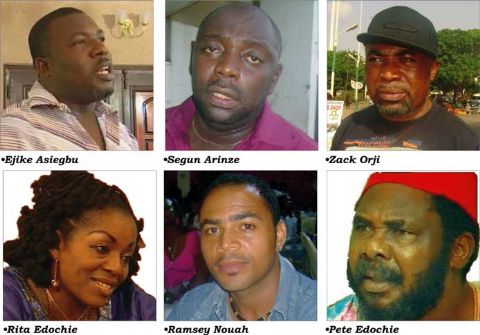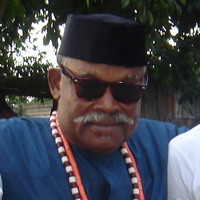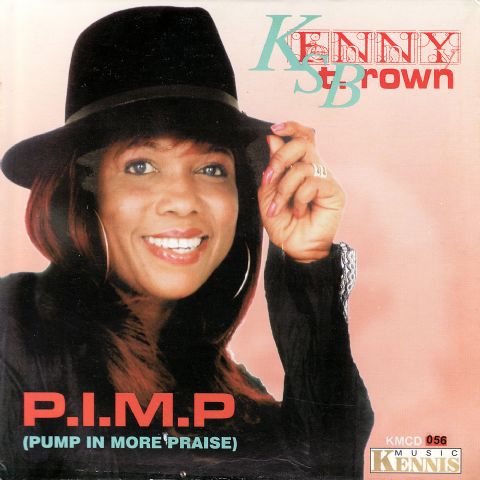
Dapo Awobotu, Executive Secretary, Lagos State Film and Video Censor’s Board, believes his agency is nothing but a child of necessity – intended to clean up… the industry for general good. He insists Lagos State government has contributed remarkably, to the growth of the Nigerian film industry (Nollywood), and is planning big for the sector. In this interview with EMMANUEL UKUDOLO, he reveals that Lagos has already commenced the development of a $5 billion (U.S. Dollars) worth film city in Badagry and argued that the said license fees being demanded by his agency any time film crews go to shoot in locations in the state cannot be deemed multiple taxation, among other issues. Excerpts:
Congratulations on your appointment, what in your background gave you the job?
I am a cinematographer by profession. I started my career with the Lagos State Television (LTV). I was appointed one year after the inauguration of the censor’s board. It was a governing board with an executive secretary, headed by a chairman. But the law establishing the board has been in existence since 2004.
What are the functions of the board?
They are numerous. But in specific, it was set up to regulate film and video industry in Lagos State. Some of the functions include censorship, classification, and regulation of cinematographic works, cinema houses, exhibition premises and the likes.
What is your mission specifically?
Our mission is to reward Nigerians. The issue of film making in Nigeria has been there for a long time. Let me join people to say that we are number three in film making, whether we like it or not in the world stage. It has gone beyond mere faking. We have a place already. We need to move the film industry to the next level in terms of technology, and other necessary things. But there are still a lot of issues that we need to tackle before we can really be called number three. Like the quality of films we produce: we need to look at that. The market is there but we need to do a lot of things to be able to maintain that market. That is why the Film and Video Censors Board was set up. Before now it has been an all-comer affair. The problem is every Nigerian wants to move on, so when they see anything that is moving, they jump into it. We should be mindful of this development. There are certain things that needed to be done that are not done right.
Government is doing everything it can to make sure that there is sanity. There are some people who say that they started the industry. But that is not the issue. How far did they go? If the government is not there the all-comer affairs will continue to thrive. That is why government is interested. All sorts of things are not done right. That is why we are here. Before now there is no censorship in Lagos. Film censorship was done generally by the National Film and Video Censors Board (NFVCB).
Censorship is one of those things that have been put in place. There are people who produce film and put it in the market without censorship. We are looking at how it is done all over the world, not just our own industry here. We are looking at people who have maintained a standard that we need to copy so that we can be there too.
Do you have enough staff and facility to be able to carry out the functions?
I will say ‘yes’ since I know that there is no establishment without constraints. In manpower, I say ‘yes’ but ‘no.’ It cannot be adequate but we have some people that are on the ground. But definitely they are not enough. There is presently an embargo on employment. There is need to lift the embargo before we can be able to employ more people.
What is the relationship between your board and the National Film and Video Censors Board?
It is cordial. In September 23, 2008, we signed an agreement to work together to sanitise the film industry in Lagos and move the industry to the next level. We are cooperating; we have the right to do what we are doing. We have right to censor and classify films. But then it will not be okay for our people, for us to classify and the NFVCB to do the same thing. But we have the right to do so and it is in compliance with the laws of Lagos State. But the best thing to do is to come together and that, we have done and I am sure that will yield a lot of income for Lagos State. We have taken the steps and it took years for us to be able to agree because when it comes to the issue of money it becomes not an ordinary issue. They have been on ground making the money before we came in. Like I said earlier on, I don’t want to double-tax Lagosians and that is why we are making sure that we do what we are doing.
Don’t you think those who made the censorship law erred by placing it on the concurrent list?
As a public figure, I cannot do otherwise until that law is amended. If you ask for my personal opinion I will say there is nothing wrong with it. But I will not want to stretch the people that much, but having had it that way we have to leave it the way it is. So, until the law is amended, we will still do it the way it is. But I will like it to be on the residual list.
Other states would definitely be spoiling to set up their own board, how would you advise them?
As long as it is good for the people of the state, they should go ahead. We are doing it because we felt that is the best option that we have.
How do you assess the film distribution frame work recently put together by NFVCB?
I will leave that question to the national body. However, we have in our guideline, the issue of film distribution. We have our own frame work. We were about starting when the NFVCB began and we waited patiently to see what the outcome will be. I am not in a position to comment on that. We have our own agenda.
What contribution has Lagos State made to the film industry, because filmmakers are saying that Lagos wants to reap where it did not sow?
I can tell you that it is not true. Let each filmmaker tell me how much they have contributed to government. They have been making money all these while. Let them tell me how much they have paid as a film levy to the state government except the video club owners. I stand to be corrected, except the video club owners, nobody has paid a single kobo to government.
The irony of the thing is that you will meet somebody who will introduce himself as a filmmaker and you ask him how many films he has made and he will say like 10 and you ask him how much he has paid to government and he says nothing. It is that same person that is accusing the state government of doing nothing for the industry. Whether they like it or not, they are benefiting from the government directly or indirectly. By the way what I collect from you cannot come back to you by way of the film you did. You enjoy roads, you enjoy all other things. But again, let me say that the Lagos State government is doing things that is of direct benefit to the filmmaker. The issue of film village is there, it is going to cost a lot of money.
Where are you citing the film village?
There, in Badagry. It is a very big project. It will benefit everybody including people that are not filmmakers. So, you cannot ask me what the state government has done for the industry.
What kind of film city are you talking of and how much is the state investing?
We want a film city that anybody whether you are from Bollywood, or Nollywood, when you come in there you will not say that you have forgotten something. It is a world class film city.
It has already started. Before you see a block on any project a lot has already gone into it. We have started it. We are investing $ 5 billion in the film city.
How are you tackling the issue of piracy and related problems?
Like I said there are a lot of problems. We are talking of regulation framework and the issue of piracy. At the moment we are still responsible for tackling the issue of piracy. It has become an offense for anybody to hawk video materials, because these are the outlets for churnning out pirated items. We are working with the national body. We have started; it is not going to be an easy task. All stakeholders have been put on notice because it is not a war that we will fight once and win.
I have looked at your forms and you are asking people to pay N500 per crew every time they go on location, is that not too much?
If I have said N1, an average Nigerian will still complain. To the best of my knowledge it is not too much. For anything you do in the industry you are in money if not immediately it could be later. It is the duty of somebody practicing in Lagos to pay something to government through the NFVCB. Another issue which has been raised is that one must have an insurance policy to cover one’s crew when one is going on location. We are talking about group insurance policy. It is as cheap as anything. Some people still ask me why filming license? It is done everywhere. If you must shot film in the state you must have permission to do so. Some have been arrested on suspicion of espionage because of lack of licenses. To ask for license to shoot film is not out of tune. But some say they cannot pay and that it is too early. They have been given more than two decades. Even the foreigners who come here know that what they do here cannot be done in their country, yet they come here and shoot without asking. We have met with the stakeholders, and what we have not failed to do is meeting regularly with the stakeholders. We brief them before we do anything. Once we think of any issue that will affect people in the industry, we call them together, sometimes we agree and sometimes we disagree all in the interest of the film industry.
What if members of the industry resist this your initiative, how ready are you to get things done your way?
Since we started sending out messages on some television stations, we have received phone calls from people, some complementary, some not complementary any way. But I am not deterred, I still remain focused. Some are asking why now that there is economic meltdown. And I say this is one of the reasons why there is economic meltdown because people are not paying what they are supposed to pay to government. Now that we have economic meltdown to get out we must do some things we are supposed to do. One of the things we needed to do is what we are now doing.



















